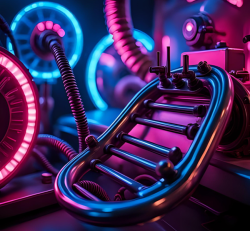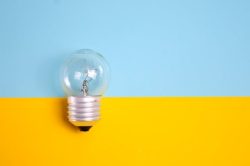This week begins breast cancer awareness month, a movement started 25 years ago largely by women and family members affected by cancer. The efforts of these men and women have been extraordinarily successful. Who doesn’t associate the pink ribbons with breast cancer? To boot, the public awareness catalyzed the need for research. The War on Cancer was born and a staggering amount of federal and private dollars research dollars have poured into cancer research. Federal breast cancer research dollars totaled $763 million in 2010.
And yet, except for the years between 1999-2005, which saw a 2% decline in new diagnoses (NCHS, SEER), largely attributed to the post-WHI decline in HRT use, breast cancer rates have increased steadily over the last two decades. The incidence of breast cancer is now 1 in 8 women (SEER). It seems the war on breast cancer has not been won.
I am not a cancer researcher and so my thoughts on cancer are offered with some trepidation. Sure, I did the requisite pharmacology papers and presentations in graduate school and even taught the basics in some of my undergraduate courses, but I don’t really know cancer, not like I know other disease processes. And so, as I pondered the state of cancer and reviewed the statistics, looking for an angle into this post, somewhere I could add to the conversation and not just regurgitate existing pablum, what became clear was a nagging sense of intellectual unease. Despite the billions spent on cancer research and the bevy of new treatments, more women are getting cancer than ever before. Perhaps better diagnostics explain the ever increasing incidence of breast cancer. Perhaps not.
Like so many modern diseases, cancer sits at the nexus between high and low science, between medicine and marketing. It is one of those diseases that at once benefits from 20th-21st century science and technology, and suffers immensely from the hubris of those same innovations.
A case and point: a report by the Personalized Medicine Coalition published three years ago and discussed last year in Bloomberg BusinessWeek indicates that of the $292 billion dollars spent on prescription medications in 2008 almost 50% went to medications that didn’t work. That means in one year, we spent $145 billion on medications that didn’t work. The report goes on to suggest that billions more were spent treating the side effects and adverse reactions.
Aside from the ridiculous amount of money spent on medications that don’t work and the billions more spent mitigating the potentially serious side-effects of these medications, both of which threaten our national economy in a very tangible manner; aside from the economics, the point that may be lost in this conversation, is that we are ingesting these medications and trusting them to work or at least not make us worse.
What happens when medications originally intended for one use are marketed for another? What happens when the need for blockbuster drug sales overshadows the actual benefits of a medication or worse yet, hides the dangers (DES, HRT, Vioxx, Yaz/Yasmin)? What happens when we disregard basic genetics, basic science and common sense when prescribing a medication? What happens when we use the one-size-fits-all or the one pill-cures-all approach?
Are we creating the very cancers we are trying to treat?













Also I don’t know cancer but I know a few other important facts about it. First, there is a fantastic book out there called “Breast Health Exposed” by Jan Janzen for only $12.95 + SH. Each woman and girl should read it. Second, I am asking everyone: Where do all those billions go to? Since early 20th century we have a cure for cancer but suppressed by the medical and pharmaceutical mafia and the government. But there are still people out there giving even more money for cancer research. Third, we should finally understand that we attract what we think. In other words, if we are scared of something we attract it and get exactly what we don’t want. Saying “fighting cancer” or “war against cancer” are negative statements and won’t do the job to turn it around. Fourth, food is one of the most important issues for our health. REAL organic food, prepared from scratch helps a lot to get healthy and stay healthy. Throw out the common table salt or the polluted sea salt as well and replace them with the unpolluted, unrefined and mineral rich salt from the Himalayan moutain area. The body needs what it is made out of and that’s water & salt. Mineralized salt! There is also a website http://www.breasthealthclinic.com. Everybody, if with or without cancer, think positive and learn to put your person together again – we are body, mind and spirit and they can’t be taken apart as the medical education wants to do… Also look at it as a chance for changes which need to be made. I recommend the book “You Can Heal Your Life” by Louise L. Hay. I wish all of you best of health. Namaste, Rose